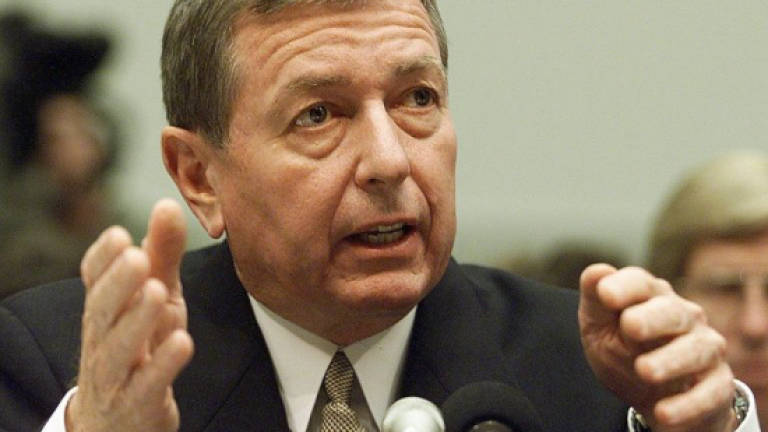Bush officials can't be sued for post-9/11 abuses, says top court

WASHINGTON: The US Supreme Court ruled Monday that senior officials from president George W. Bush's administration cannot be held responsible for abuses against Muslim immigrants and others held in the frantic response to the September 11, 2001 attacks.
The 4-2 decision marked a victory for ex-attorney general John Ashcroft and former FBI director Robert Mueller, who have claimed along with other Bush era officials that they have immunity from prosecution.
With the court's ruling – which saw two justices recuse themselves and another skip the vote – Ashcroft and Mueller also avoided being held personally liable.
The court was not making a decision on the prisoners' treatment but rather as to whether the Bush officials should be granted legal protection from lawsuits and damages related to detention policies.
"The risk of personal damages liability is more likely to cause an official to second-guess difficult but necessary decisions concerning national-security policy," Justice Anthony Kennedy wrote in his majority opinion.
If the court had held the officials liable, he added, "high officers who face personal liability for damages might refrain from taking urgent and lawful action in a time of crisis".
After the deadly airliner attacks on New York and Washington, authorities arrested and detained more than 750 people on immigration charges, sometimes based on a simple tip to police.
The six plaintiffs were among non-US citizens living in the United States who were held without bail until cleared in the Brooklyn borough of New York.
Five of the men, all of Arab or South Asian descent, were Muslim. They said they were targeted because they were Muslim or Arab, and for no reasonable cause.
The group also complained of harsh detention conditions, held for 23 hours a day in small, constantly lit cells with little opportunity for exercise or recreation and no access to basic hygiene products such as soap or a toothbrush.
They said they were often strip-searched, largely barred from communications with the outside world and subjected to "physical and verbal abuse" by guards, who they said slammed detainees into walls, twisted their limbs, broke their bones and called them terrorists.
Some were held in these conditions for up to eight months after 9/11. They were deported from the United States after their release.
"If the facts alleged in the complaint are true, then what happened to respondents in the days following September 11 was tragic," the court's ruling read.
"Nothing in this opinion should be read to condone the treatment to which they contend they were subjected."
It left open the possibility for the men to challenge their detention conditions by proving their case against the prison warden.
Allowing 'rampant' discrimination?
Justices Stephen Breyer and Ruth Bader Ginsburg, of the court's liberal wing, dissented.
"History tells us of far too many instances where the executive or legislative branch took actions during time of war that, on later examination, turned out unnecessarily and unreasonably to have deprived American citizens of basic constitutional rights," Breyer warned in the dissent he penned.
"In wartime as well as in peacetime, it is important, in a civilized society, that the judicial branch of the nation's government stand ready to afford a remedy for the most flagrant and patently unjustified, unconstitutional abuses of official power, he added, citing previous court decisions.
Rachel Meeropol, a lawyer for the Center for Constitutional Rights who represented the detainees, said she was "very disappointed" with the ruling.
"The Court's decision allows for high-level officials to violate the Constitution without fear of personal accountability, a dangerous message in this time of rampant state-sponsored discrimination against Muslim and immigrant communities," she said.
Mueller, who led the FBI from 2001-2013, has recently been named special counsel to oversee a massive probe into claims of Russian collusion with President Donald Trump's campaign to tip the 2016 elections in his favor. — AFP